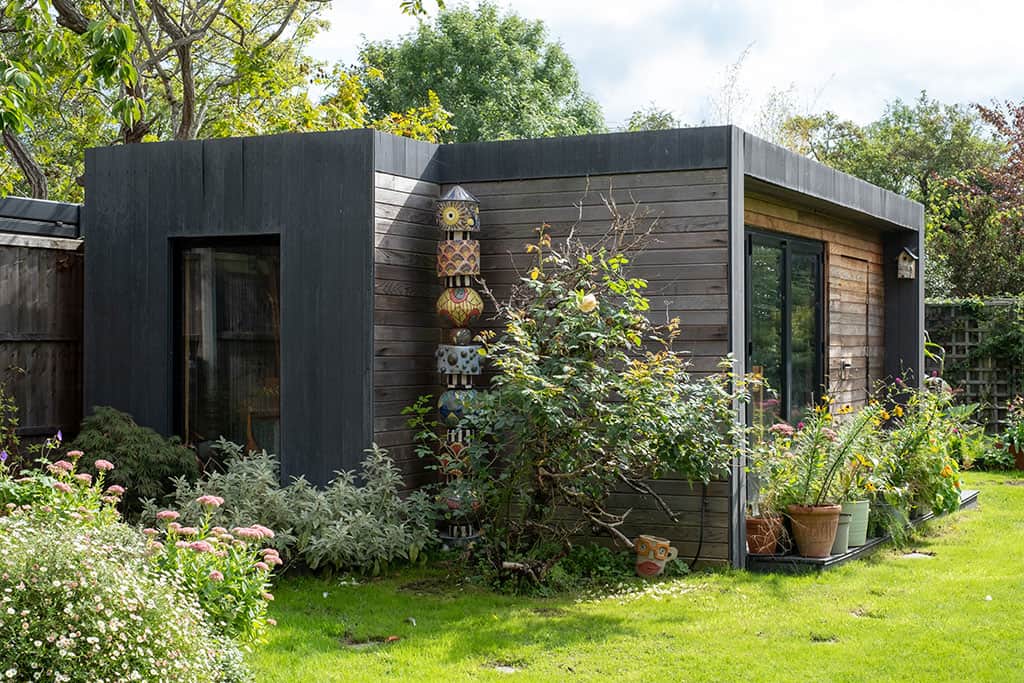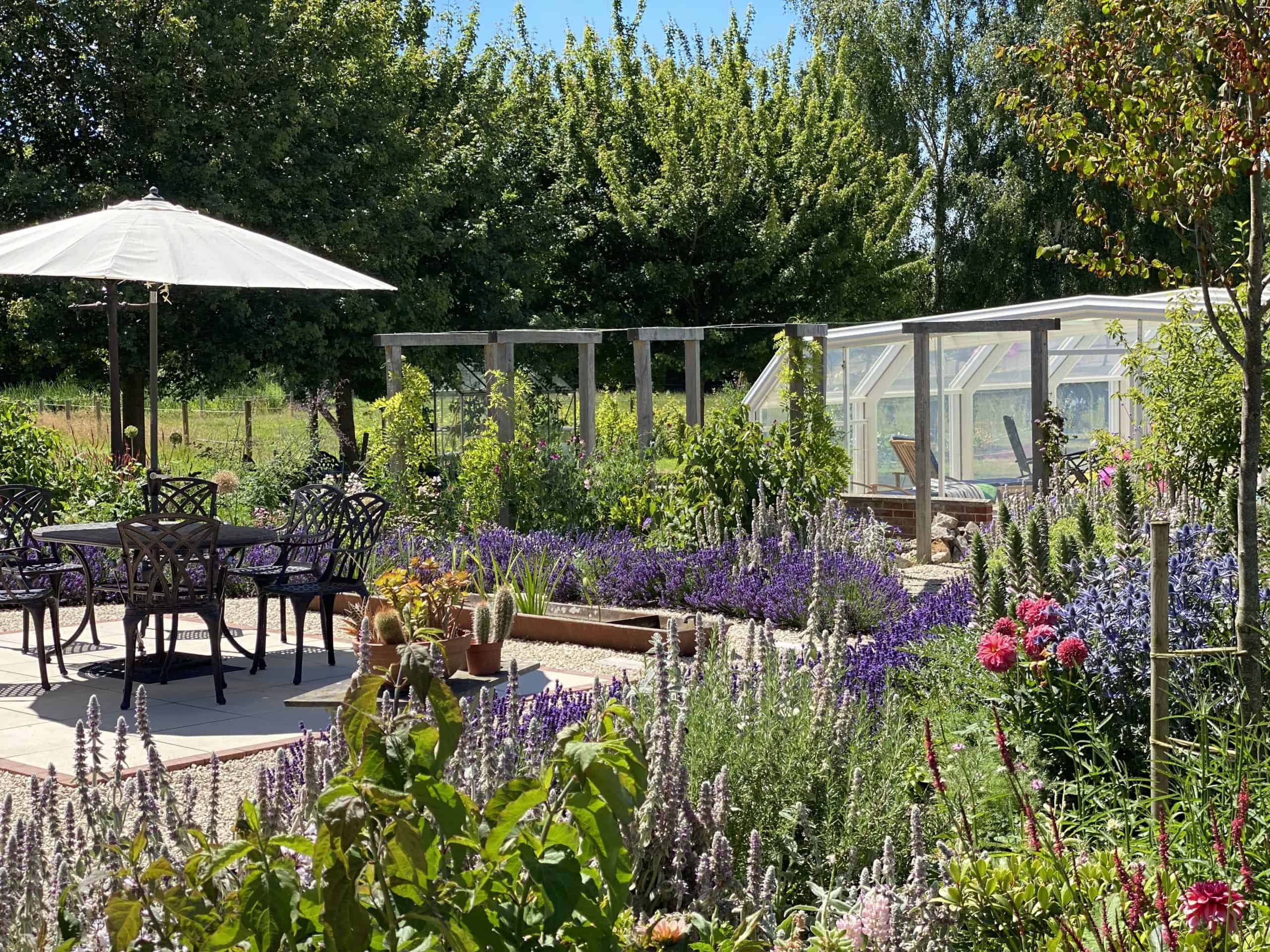
Designing a Future-Proof Family Garden: Sustainable Solutions for Bristol Gardens
Estimated reading time: 7 minutes
Are you a family homeowner in Bristol, Bath, or the surrounding Somerset area, dreaming of a beautiful garden but worried about the unpredictable British weather? The days of a perfect, manicured lawn are giving way to a new kind of garden – one that’s not just stunning but is also resilient, low-maintenance, and kind to the planet. This is the future-proof family garden, and it’s designed to thrive through scorching summers and sodden winters, giving you more time to enjoy it.
At Compass Garden Design, we believe your garden should be a sanctuary, not a chore. By embracing sustainable principles, we can create a functional, beautiful, and durable outdoor space that provides for your family’s needs while reducing its environmental impact. This isn’t about sacrificing style; it’s about making smart choices that will benefit you for years to come.
What Makes a Garden “Future-Proof”?
A future-proof family garden is one that is designed to withstand the changing UK climate. Bristol, with its unique blend of urban heat islands and proximity to the damp south-west, experiences a wide range of weather, from intense downpours to prolonged dry spells. A resilient garden is built to cope with these extremes, primarily by managing water effectively and choosing the right plants and materials.
The key pillars of a future-proof garden are:
- Water-Wise Design: Using techniques and plants that require less water and actively capture and reuse rainwater.
- Climate-Resilient Planting: Selecting species that can handle both drought and saturation, reducing the risk of plant loss.
- Sustainable Materials: Opting for durable, locally sourced, and recycled materials that minimise your carbon footprint.
- Biodiversity Enhancement: Creating a habitat that supports local wildlife, from pollinators to hedgehogs, which in turn helps your garden flourish.
Ultimately, this design philosophy results in a garden that is naturally robust, requiring far less intervention and maintenance from you. More time for picnics, play, and relaxation – less time for weeding and watering.
Navigating Bristol’s Climate: From Wet Winters to Dry Summers
Bristol’s climate is characterised by mild, damp winters and increasingly warm, dry summers. On average, the city receives around 913.8mm of rainfall per year, but recent years have seen this rainfall concentrated into more intense, shorter periods, leading to both flash flooding and drought conditions. Your garden design needs to anticipate this.
We start by assessing your soil type and garden aspect. Many Bristol and Somerset gardens, particularly those on hillsides, have excellent natural drainage, but those in lower-lying areas may struggle with waterlogging. A professional garden designer can create a bespoke plan that addresses these specific challenges, turning potential problems into design opportunities.
1. The Art of Water-Wise Planting
The right plant in the right place is the golden rule of sustainable gardening. Instead of fighting your environment, we work with it. The goal is to choose drought-tolerant plants that thrive in drier conditions while also coping with occasional deluges.
For a family garden in Bristol, we recommend a mix of hardy perennials, grasses, and shrubs. Here are some of our favourites:
- Lavender (Lavandula): A classic choice that’s not only drought-tolerant but also attracts bees and provides a wonderful scent. It’s perfect for sunny borders or as a low hedge.
- Sedum: With their fleshy leaves, sedums store water and are incredibly resilient. They offer fantastic autumn colour and texture.
- Ornamental Grasses: Species like Feather Grass (Stipa tenuissima) and Blue Fescue (Festuca glauca) add movement and texture, thrive in poor soil, and require minimal watering once established.
- Rosemary (Salvia rosmarinus): Another Mediterranean favourite that’s tough, evergreen, and offers a dual purpose for both cooking and garden aesthetics.
A diverse planting scheme that includes native species is key to building a resilient ecosystem. These plants have evolved to survive our local climate and provide essential food and shelter for native wildlife.
2. Smart Water Management: Your Garden’s Secret Weapon
One of the most impactful changes you can make is to manage the water that falls on your property. This is particularly important in built-up areas of Bristol where drainage systems can be overwhelmed.
- Rainwater Harvesting Systems: Installing a simple water butt connected to your downpipe can provide enough free, chlorine-free water for all your garden’s needs. For larger gardens, a more sophisticated underground tank can be used to store thousands of litres. This not only saves you money on your water bill but also reduces the strain on the public water supply.
- Permeable Surfaces: Paving or patios can contribute to water runoff. We specify permeable paving or materials like gravel that allow water to filter through to the soil below. Creating a rain garden with absorbent plants in a lower-lying area can also effectively manage and filter storm runoff from your home.
- Mulching and Composting: A thick layer of organic mulch around your plants suppresses weeds and drastically reduces water evaporation from the soil. Composting your kitchen and garden waste improves soil structure, helping it to absorb and retain water like a sponge.
3. A Focus on Sustainable Materials & Construction
The materials you choose for your garden have a significant environmental impact. A future-proof garden uses materials that are either recycled, locally sourced, or have a long lifespan.
- Timber: We use responsibly sourced, FSC-certified timber for decking, pergolas, and raised beds. Alternatively, reclaimed timber can add rustic charm and a unique story to your garden.
- Decking: A long-lasting composite decking can be a great, low-maintenance alternative to timber, made from recycled plastic and wood fibres.
- Hard Landscaping: Instead of new concrete, consider using local stone, permeable pavers, or recycled aggregates for paths and patios. This creates a more natural aesthetic while enhancing water management.
The Compass Garden Design Approach in Bristol
Our design process is tailored to the needs of busy family homeowners. We begin with a collaborative consultation to understand your family’s lifestyle. Do you need a safe play area for the kids? A secluded spot for the adults to relax? An outdoor kitchen for entertaining?
From a compact terrace in Clifton to a sprawling plot in the Chew Valley, we apply our expertise in sustainable design to create a plan that balances aesthetics with practicality. Our comprehensive service, from initial concept to completion, ensures a seamless journey to your new future-proof garden.
Why a Professional Designer is a Smart Investment
Attempting to design a sustainable garden yourself can be overwhelming. A professional designer, like Compass Garden Design, has the expertise to:
- Select the right plants for your specific soil, aspect, and climate.
- Create a strategic layout that maximises your space and manages water flow.
- Source sustainable, high-quality materials from local suppliers.
- Integrate complex features like rainwater harvesting systems seamlessly into the design.
Hiring a professional is an investment in your home and in the planet, ensuring a garden that provides enjoyment for decades to come.
Frequently Asked Questions
Q: Will a “future-proof” garden look wild and unkempt?
A: Absolutely not. A sustainable garden can be as modern or traditional as you like. The key is intelligent design. We use structured elements and clever planting to create a beautiful, cohesive look that requires minimal upkeep while still benefiting the environment.
Q: How much does a sustainable garden design cost?
A: Costs vary depending on the size of your garden and the complexity of the design. However, a future-proof garden can save you money in the long run on water bills and plant replacements, making it a wise investment for Bristol homeowners.
Q: Can I still have a lawn?
A: Yes, but we recommend reducing its size or opting for a more resilient, biodiverse lawn that includes drought-tolerant grasses and wildflowers. A healthy lawn, when properly maintained, can still be part of a water-wise garden.
Author Bio
Tom Murphy, Director, Compass Garden Design
Tom Murphy has been working as a Landscape Garden Designer since 2016, operating in Bristol, Bath, and many other locations in the South of England. Having trained at the Garden Design School under renowned RHS gold medal winners, he is a registered member of the Society of Garden Designers. Based in Bradford-on-Avon in Wiltshire, Tom has undertaken work across the whole of the South of England, from Exeter to Kent.








